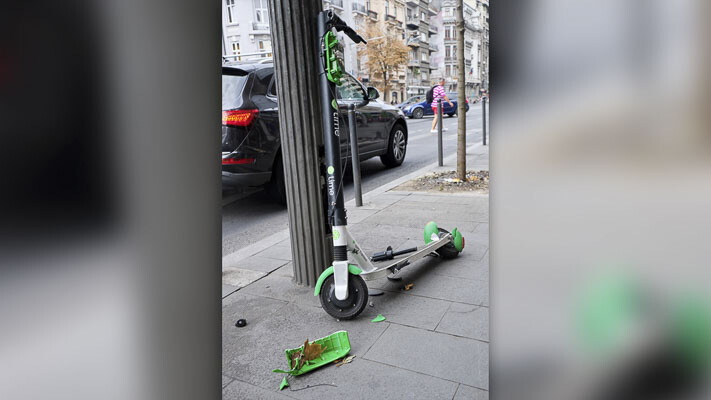
Mark Harmsworth of the Washington Policy Center believes the scooter companies continuing to provide scooter services should pay their fair share for road improvements to run their services safely
Mark Harmsworth
Washington Policy Center
Urban planners and bureaucrats continue to expand government funded electric bike and scooter programs in downtown cores, despite the obvious safety concerns with having scooters in close proximity to faster, heavier vehicles, including cars and buses.

Seattle even repealed bicycle helmet laws, citing helmets were discriminatory and ignoring the obvious negative safety implications of riding without one.
The Associated Press is reporting the National Transportation Safety Board (NTSB) has published a study that shows 119 deaths occurred from electric bike and scooter use between 2017 and 2021.
As the Washington Policy Center has highlighted previously, cities that have allowed scooters to be deployed in their downtown areas have had mixed results on their effectiveness and safety. Not only are scooter users at a higher risk of injury, but pedestrians are also at risk from scooter riders who ride on the sidewalk.
Additionally, as inner-city residents have discovered, abandoned scooters on the sidewalk are causing a safety issue for pedestrians, pushing some into the street to avoid the discarded scooters. Preventing scooter abandonment is nearly impossible in many downtown cores and many accidents are going unreported.
There is a real litigation risk to municipalities and it is only a matter of time before a fatal accident occurs in the public right of way that results in a lawsuit filed against both the scooter company and the municipality.
In addition to safety concerns, this adds to the cost of running the service as the scooters must be retrieved and repaired, shortening the lifespan of the scooter.
Many local governments that are pushing the benefits of having electric scooters in their downtown areas don’t really have a clear picture the overall fiscal impact.
Cities that have tried the experiment and failed are embroiled in controversy and are experiencing “scooter rage” with their residents. The company Jump already pulled out of San Diego when the scooter program failed there. And that doesn’t include the scooters that end up in ditches on the side of the road.
As with many feel-good environmental policies, the benefits of scooters are frequently inflated while safety and costs are diminished or altogether ignored.
Many downtown cores, including Bellevue and Seattle were not designed for scooter use and retrofitting the streets to improve safety for scooters is not practical or cost effective without removing the existing infrastructure for both pedestrians, cars and to some degree bicycles. Infrastructure that is currently paid for through the assessment of property, sales and gas taxes and vehicle fees.
If the scooter rental companies were to pay for the public road access and improvements that they currently enjoy for free, the cost to run and rent scooter programs would not be profitable. The scooter companies are making a profit from the fees and taxes paid for by other road users for the road improvements the scooters use.
The scooter companies continuing to provide scooter services should pay their fair share for road improvements to run their services safely.
Mark Harmsworth is the director of the Small Business Center at the Washington Policy Center.
Also read:
- Rising fuel prices could impact road trip plans for WashingtoniansAccording to the American Automobile Association, as of Friday, Washington state drivers are paying an average of $4.67 a gallon for regular unleaded gas – 34 cents higher than a month ago.
- Overnight lane closures on southbound I-5 in Battle GroundWashington State Department of Transportation maintenance crews will close the left two lanes on southbound I-5 April 23-25 to fill cracks in the roadway with melted rubberized material
- 40 Vancouver single family homes in IBR crosshairs plus 35 floating homes on Hayden IslandPublic Records show who is at risk of losing homes and business locations in the proposed Interstate Bridge replacement project.
- Target Zero: April is Distracted Driving Awareness MonthLocal law enforcement agencies, working with the Target Zero campaign, will be out this month trying to stop distracted drivers on Clark County roads.
- $400 million Francis Scott Key Bridge replacement highlights problems with I-5 Bridge projectInterstate Bridge replacement proposal compares poorly with Baltimore and other projects.









